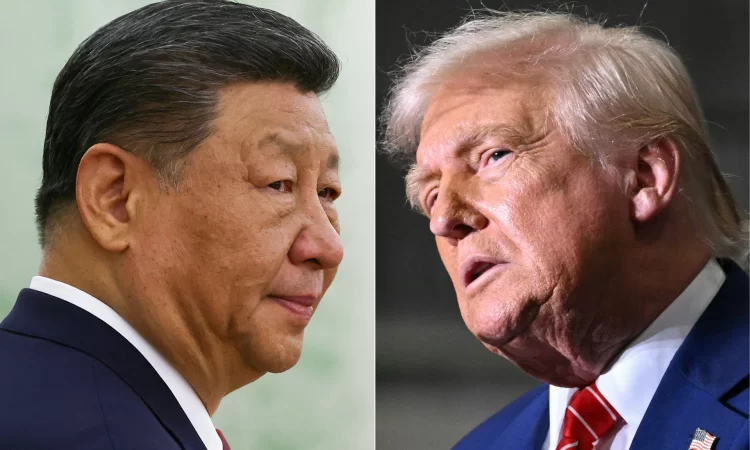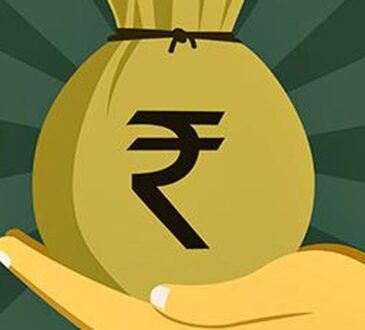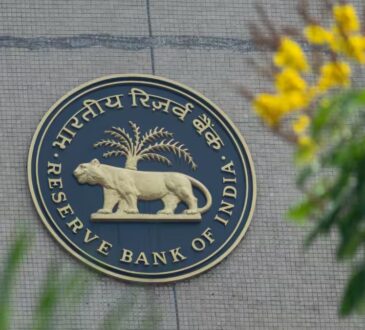Hang Seng plummets 3.1%, STI drops 1.2% in Asia market rout on fresh US-China tariff flare-up

Trump’s tariff moves following China’s rare-earths export controls ripple through markets
[SINGAPORE] Selling hit Asia-Pacific markets on Monday (Oct 13) following the latest salvo in the trade war between the US and China.
As at 2.20 pm, Singapore’s Straits Times Index (STI) was down about 1.2 per cent, while Hong Kong’s Hang Seng Index slumped as much as 3.1 per cent as at 11.40 am before paring some of the losses to be 2.6 per cent down.
In mainland China, the Shanghai Stock Exchange Composite Index fell 3.3 per cent as at 9.45 am, before paring some losses to be 0.6 per cent lower, while the CSI300 tumbled 4.5 per cent initially and recovered slightly to be 0.8 per cent down at 2.20 pm.
South Korea’s Kospi was down as much as 1.5 per cent as at 9.35 am before paring some losses to be 1.2 per cent lower at 3.20 pm in the country. Australia’s ASX 200 fell 0.8 per cent as at 5.20 pm Sydney time.
Markets in Japan are closed for a holiday.
US President Donald Trump on Oct 11 said that he would impose a fresh 100 per cent tariff on China, on top of existing levies, and export controls on “any and all critical software” starting from Nov 1. This came after an Oct 10 threat of trade action against China in response to “hostile” export controls Beijing placed on rare-earth minerals.
BT in your inbox

Start and end each day with the latest news stories and analyses delivered straight to your inbox.
Beijing on Oct 12 said it will retaliate if Trump does not back down, according to state news agency Xinhua.
Trump’s planned tariffs will see import taxes on Chinese goods rise to 130 per cent from 30 per cent, slightly under the 145 per cent level imposed earlier this year that was later reduced.
Trump later posted a statement on his social media platform Truth Social that hinted Chinese President Xi Jinping might have a way to back down and suggested that a full trade war would hurt China.
Volatility and losses likely limited to short-term
Analysts broadly expected this latest shock to dissipate in the medium and long term, with the latest war of words likely just for show.
Citi analysts on Monday suggested that stock volatility should be lower than during the US reciprocal tariffs in the second quarter of 2025 “because the new tariff only applies to exporters directly exporting to the US from China”.
Morningstar’s Asia equity market strategist Kai Wang said the looming threat “could be short-lived” and offered investors a chance to buy China stocks at a relative discount.
He added that the US government shutdown is also increasingly dampening consumer sentiment in the US, which implies Trump will want to avoid re-escalating foreign policy issues without solving the domestic shutdown first.
“Riskier assets such as Bitcoin and Nasdaq futures are also up 4 and 2 per cent, respectively, since the US market close on Friday, while S&P futures were up 1.3 per cent as at 10 am Hong Kong time, suggesting that investor sentiment remains positive,” said Wang.
Morgan Stanley analysts concurred that the “most likely outcome” is the easing of tensions, with the US maintaining a stance of “competitive confrontation” through elevated tariffs, non-tariff barriers and “selective de-risking” from China.
The belief that the latest hits in the trade spat were just posturing was echoed by Eli Lee, the chief investment strategist at the Bank of Singapore.
“Our assessment of forward scenarios at this juncture leans towards sabre-rattling or a moderate intensification of US-China tensions, instead of a sharp re-escalation of the US-China conflict,” said Lee.
He added that the overall risk environment remained “constructive” in the long term, given that rates cuts are to come. But he cautioned that portfolios should be “sufficiently diversified and robust” to withstand heightened volatility and a possible short-term correction “if US-China uncertainties further intensify”.
Christian Gattiker, head of research at Julius Baer, also agreed, stating that while the shock is “uncomfortable”, it is “ultimately healthy” and “for now, patience trumps positioning”.
“As before, we expect an eventual re-engagement and some symbolic concession to follow,” he said.




